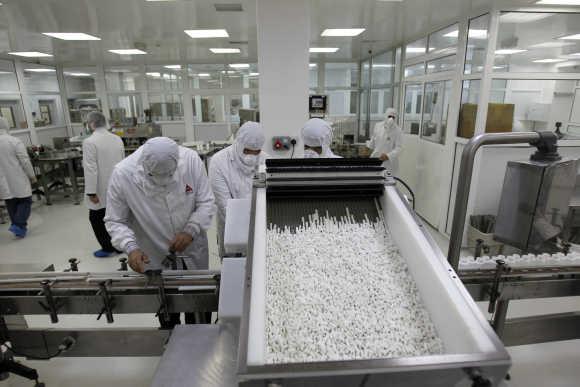
Research based doctoral programmes at various reputed universities in the world play a critical role in the development of human resources in five broad fields.
Overall, one can pursue research in any of the 41 fields mentioned below:
Arts and Humanities: Art History, Classics, Comparative Literature, English Language and Literature, French Language and Literature, German Language and Literature, Linguistics, Music, Philosophy, Religion, Spanish and Portuguese Language and Literature.
Biological Sciences: Biochemistry and Molecular Biology, Cell and Developmental Biology; Ecology, Evolution, and Behavior, Molecular and General Genetics, Neurosciences, Pharmacology; Physiology.
Engineering: Aerospace Engineering, Biomedical Engineering, Chemical Engineering, Civil Engineering, Electrical Engineering, Industrial Engineering, Materials Science, Mechanical Engineering.
Physical Sciences and Mathematics: Astrophysics and Astronomy, Chemistry, Computer Sciences, Geosciences, Mathematics, Oceanography, Physics, Statistics and Biostatistics.
Social and Behavioural Sciences: Anthropology, Economics, Geography, History, Political Science, Psychology, Sociology.
Today many of the universities are well equipped with powerful tools and techniques that empower the graduate student to conduct an extensive research in the field of his/her interest.
Though the duration of a doctoral programme depends strongly on the field in which it is taken, it normally takes anything between three and six years.
Nowadays, both the industry and academic communities require researchers to switch between fields as and when required.
So, how does one pick the right research programme?
Please click NEXT to continue reading...

In most of the universities, the master's degree is a prerequisite for pursuing a doctoral programme.
Some of the universities may consider exceptional bachelor's degree marks or awards coupled with good work experience in the relevant field for the admission. However this may vary from case to case.
Most of the universities (especially in the USA) expect a good score in GRE -- General test and a good TOEFL score.
A good GRE score according to the new GRE pattern is anything above 310 out of 340 for PhD admission. A good TOEFL score ranges between 100 and 120.
A good GPA (Grade Point Average) at the undergraduate or post graduate level is also an important concern for the admission committee. It clearly indicates the student's capability to perform research and eventually become successful in the field of interest.
A relevant work experience or some research background in the field can greatly improve the chances of the admission.
The admission committee expects you to have an idea of what your dissertation or doctoral research will be about when you apply.
Some of the schools may interview the potential candidates over telephone or Skype.
The invitation to interview could be to know more about the candidate and his/her research plans so that the admission committee becomes more comfortable to provide a student direct funding or scholarship.
Sometimes they may expect more clarifications from the student with regards to his/her earlier research background or what the student may have written in the statement of purpose (SOP) and the essays.

Majority of the universities that have extensive research activities support the students with a stipend and tuition scholarship during the doctoral studies. Such facility reduces the financial burden.
There are various funding plans with regards to the amount or the length of time that a PhD student can avail for financial support.
The funding options are intended to help the students meet their cost of studies partially or fully.
Before applying to the universities abroad, one should know the exact nature of these funding options available.
Some universities for some specific research programmes may limit the total number of years for which the financial support can be provided.
They may even provide financial assistance for travel to scientific conferences, as per the need of the research programme.
It's the universal norm that Assistantship, Scholarships or Financial Aid are given to meritorious students.
To avail any kind of financial assistance at an international academic level, one has to prove one's capability among the others.
If you intend to apply for scholarships, please ask these questions: Why should I get a scholarship or a financial assistance? Why should the admission committee or a programme director onsider my application for financial aid? How am I going to contribute to their department and in turn to the university?
Industry-funded PhD
Sometimes professionals can get a chance to work in the industry and simultaneously study for a doctorate part-time which in most ocassions is completely funded by the employer.
In this case the employer makes sure that the right candidate is selected for this research work, wherein s/he will have to collaborate with the research institute and their team of researchers.
Doctoral students not only get a chance to work on real world applications but also frequently interact with the company scientists and visit their laboratories as a part of their doctoral studies.
Depending on the research work, most of the times funding comes from the industry, while the university, research institute or the industry can retain the intellectual property rights of the work done.
Doctoral students always have bright chances of joining the funding company after completion of the research.
ALSO READ: Study US: All about assistantships & scholarships

The 'shocking' fact is that a majority of the students who start their doctoral studies 'actually' never receive the PhD. There are many reasons for this. To avoid being caught in such a situation, follow this advice
Ask yourself: Do you have the passion -- 'a burning desire' for research? Also do you have any research topic in your mind that always motivated your curiosity?
You MUST have the answers before you plan your doctoral studies that require a great level of patience, perseverance and immense hard work. The important points to follow are:

The United States of America is the ideal place to do the PhD, considering the big choice of the most distinguished universities and research institutes in the world.
Many of the American universities offer full / partial funding options to meritorious students.
Apart from the USA, students can definitely think of doing the PhD in Germany, Sweden, Netherlands, UK, or Singapore.
The process of admission, the eligibility requirements, various funding options and the length of the programme may vary from the country to country and university to university.